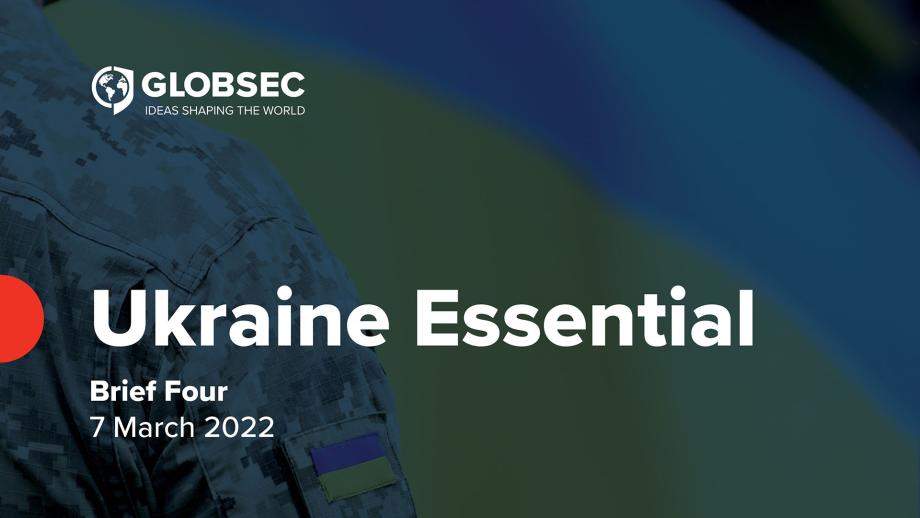GLOBSEC supports the call from Poland, Latvia, Lithuania and Estonia

Bratislava, 2 March| Leaders of the Baltic states and Poland are responding with a joint letter to the spread of disinformation and lies, which has intensified in the wake of Russia’s invasion of Ukraine.
The spread of disinformation, conspiracy theories and Russian propaganda in the information space is a permanent and ever-growing threat. GLOBSEC fully supports the call of the leaders of Poland, Lithuania, Latvia and Estonia requesting big tech companies such as Facebook, Google, YouTube and Twitter to streamline the detection of false information in the cyberspace and to prevent the spread of Russian war propaganda.
“Social media need to focus more on fact-checking. Everyone can say what they want without facing any consequences and responsibility. Although liberal democracy is built on freedom, it should unequivocally single out and prosecute those who spread hatred, war propaganda and false information,” said Róbert Vass, president and founder of GLOBSEC.
Like the leaders of the aforementioned countries, GLOBSEC joins the call for social media to block official accounts of Russia and Belarus on their platforms and to limit the spread of pro-Russian war propaganda and disinformation through affiliated accounts in general. Although some companies have already restricted the activities of Russian state media on social media more concrete measures are needed in the future to prevent the spread of hate speech and war propaganda in the cyberspace.
GLOBSEC has been working on countering disinformation and other forms of hybrid threats since 2015, when information operations aimed at undermining democracy and Euro-Atlantic unity began to intensify in the Central European region. It cooperates with many media outlets, universities, non-profit organizations and state institutions throughout Europe on activities helping to build the resilience of society.
“If the European Union is blocking websites spreading Russian propaganda, tech giants should respond in the same way towards their social media accounts. Disinformation about the war in Ukraine should be removed from algorithms that recommend content to users and thus make it impossible to create paid content. Special attention should be paid to the fact that if sites or accounts spread messages likely to cause public unrest, incite violence or promote war propaganda, they are prosecutable,” explains analyst Dominika Hajdu, Head of the Centre for Democracy and Resilience at GLOBSEC.
Polarisation of society and undermining of unity within the EU and NATO are direct consequences of hybrid attacks. The situation we see today in eastern Ukraine is massively supported by a hybrid offensive led by the Kremlin. This applies not only to Ukraine, but to almost every country in the EU, the Western Balkans and other world regions. Today, global social media bear very little responsibility for the content shared via their platforms. They become a haven for warmongers, conspirators and hate speech promoters.
Contact for media:
Adam Sipos
+421 948 066 234